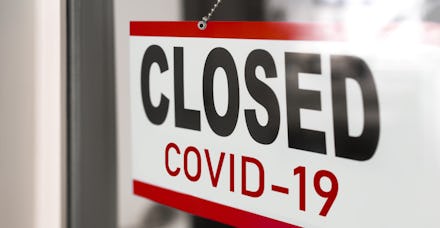The latest jobs report indicates we might be in the coronavirus recession for years

The coronavirus pandemic's impacts on the economy cannot be understated. In May, unemployment leapt to nearly 15%, marking the highest rate since the Great Depression. While jobs are coming back, the growth isn't enough. The latest jobs report released Friday morning shows that the U.S. job growth has slowed for the third month in a row; at this rate, it may take years for the economy to recover from the pandemic.
On Friday, the Bureau of Labor Statics released their September report, which showed the U.S. added 661,000 jobs during the month. That may seem like a lot, but to put that number into perspective, nearly 1.5 million jobs were added in August, 1.8 million in July, and 4.8 million in June. While the unemployment rate did lower to 7.9% from 8.4%, there was an increase in long-term unemployment (people who've been jobless for at least 27 weeks) to 2.4 million.
Overall, the report shows that the boon of jobs seen throughout the summer may be fading. In response to the BLS data, the Economic Policy Institute reported that at its current pace, the U.S. economy will take years to return to the pre-pandemic labor market. The EPI also pointed out that there are still significant racial disparities: The unemployment rates for Black (12.1%) and Hispanic workers (10.3%) are still far higher than white workers (7%).
Looking at job growth and economic recovery in this moment is complicated. While it's understandable that people want to see unemployment fall, it wouldn't necessarily be a good thing, given the pandemic is far from over (President Trump tested positive for coronavirus Friday morning) and there are concerns about people returning to work. Even celebrating those summer job additions without considering further context is unwise.
After all, Trump and other members of the Republican Party pushed states to "re-open" early. So sure, while a lot of jobs returned to the market, a number of workers were forced to choose between a paycheck and their health. Focusing only on economic recovery without considering that these numbers represent actual people who can become sick would be a disservice.
Besides, in the midst of a pandemic, the federal government must shoulder responsibility for its people. For months, people have called on the Trump administration to do more, pointing out that a single $1,200 stimulus check isn't enough. With job growth slowing, even as Trump tries to rush recovery, it's abundantly clear that people need help. And given that Trump has the worst job losses on record heading into the election, it may become more of a central issue as November approaches.